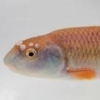Fish disease
#1
 Guest_Mikex2332_*
Guest_Mikex2332_*
Posted 26 October 2011 - 07:49 PM
#2
 Guest_jblaylock_*
Guest_jblaylock_*
Posted 26 October 2011 - 08:03 PM
#3
 Guest_EricaWieser_*
Guest_EricaWieser_*
Posted 26 October 2011 - 09:19 PM
http://www.fishyfarm..._disorders.html
Don't treat with any medication until you're positive of the diagnosis. Medication can irritate fish and make them sicker, so adding drugs when there's no chance of it aiding the fish (because you've misdiagnosed it) won't help at all.
Also, you should measure your ammonia, nitrite, and nitrate concentration. If the ammonia is above 0 ppm, if the nitrite is above 0 ppm, or if the nitrate is above 30 ppm, you might want to do a 1/3 water change once a day for multiple days. Nitrogenous compounds poison fish and decrease their ability to fight off pathogens. Clean water might help your fish to overcome the infection on their own. They weren't infected with it initially, although the pathogen was present, so that means that it's possible they can fight it off on their own without meds. Of course, if you get it diagnosed with that dichotomous key, then by all means use the recommended medication. Use it all, for the entire length of time recommended. *nods*
#4
 Guest_frogwhacker_*
Guest_frogwhacker_*
Posted 27 October 2011 - 03:37 AM
Steve.
#5
 Guest_gzeiger_*
Guest_gzeiger_*
Posted 27 October 2011 - 07:50 AM
#6

Posted 27 October 2011 - 08:43 AM
dilution is the solution to the solutionRegardless of the diagnosis or water test results, water changes will help. I'm more aggressive than Erica and would suggest 50%, even twice daily if you like the fish enough (though in winter time it may be difficult to match temperatures, so smaller additions may be appropriate). Whether it's bacterial or a parasite or a toxin, water changes reduce the exposure of the remaining fish so their immune systems have less work to do.
...or as a chemist friend of mine says...
if you are not part of the solution you are part of the precipitate
#7
 Guest_gerald_*
Guest_gerald_*
Posted 27 October 2011 - 01:29 PM
#8
 Guest_LincolnUMike_*
Guest_LincolnUMike_*
Posted 27 October 2011 - 11:39 PM
As noted previously, you do not mention any water quality checks. This is a must! You also do not mention the temperature of your tank. Small Mouth ideal temperature is 68 to 70 degrees F. per Michigan DNR (http://www.michigan....45689--,00.html) and 60 to 70 degrees F. per MissourScenicRivers.com (http://www.missouris...Smallmouth.html).
You also did not indicate whether these were wild caught, had been isolated prior to placement in tank, or how long they had been in captivity.
If your temperature is in the high range or above this range, and your other fishes can tolerate a lower temperature, you can lower the temperature of your heater to perhaps 62 degrees. At worst, this will buy you more time to diagnose and treat. And, at best (but less likely) put the disease in remission.
And, as a reminder,if you do determine a treatment option, you will want to discard any filter media (especially if it contains carbon) and probably turn off your filter prior to initiating the treatment. If it is a treatable bacterial infection, usually bacteria are more active at higher temperatures, so when you begin treatment, you can turn the temperature back up (perhaps 1 degree per hour or so) in order to decrease the time it will take to be effective.
#9
 Guest_Mikex2332_*
Guest_Mikex2332_*
Posted 28 October 2011 - 07:24 PM
1 user(s) are reading this topic
0 members, 1 guests, 0 anonymous users









